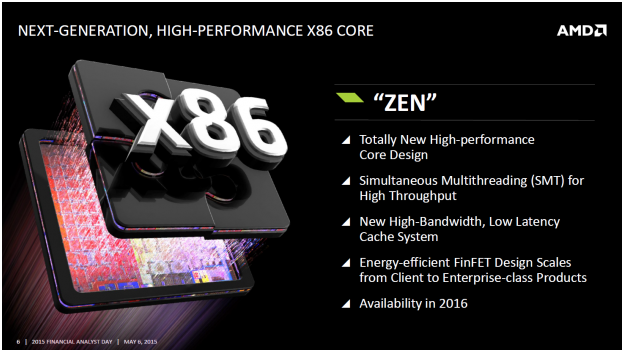AMD has appointed a
brand new corporate VP, Nazar Zaidi, in order to head future development
associated with CPUs, SoCs, and techniques engineering. While Zaidi isn’t being
billed like a direct replacement for Rick Keller, AMD’s former PROCESSOR
architect, his position appears to blend both engineering as well as long-term
product focus as well as development. Keller left the organization last summer
after finishing the Zen design; the CPU design team may be headed by Chief
Technologies Officer (CTO) Mark Papermaster throughout the interim period.
Nazar Zaidi was previously a VP of architectural at Broadcom and done that
company’s custom ARMv8 processor chip, dubbed Project Vulcan. That project
appears to possess quietly come to a finish after Broadcom was acquired by
Avago last year - at the minimum, there’s been no significant news for pretty
much a year. Prior to employed by Broadcom, he was the VP associated with
engineering for NetLogic and oversaw development from the XLP980, a high-end
social networking and communications processor (NetLogic had been acquired by
Broadcom).
Jump to the 1990s, and Zaidi led development of several facets of the original
Itanium, such as its bus architecture as well as hardware compatibility
implementation. The performance of stated hardware implementation was
considered poor at that time. I’ve never seen a failure of why Merced’s x86
overall performance was so awful, however the chip suffered numerous delays as
well as development issues. To some within the CPU community, working on
Itanium might be described as a negative rather than a strength - I believe
such a viewpoint is quite premature.
With that stated, I think it will be a mistake to paper within the scope of the
problem facing both Zaidi as well as AMD itself. Even if Zen delivers on all
AMD’s promises, the new CPU core isn’t likely to close the gap between AMD and
it is rival, Intel, in just one bound. APU hardware still must be brought to
market, AMD will have to decide when and if it really wants to develop
technologies like HBM2 for that desktop and laptop room, and the PC marketplace
remains soft.
Lisa Su has organized plans for AMD in order to regain ground in server and
mobile in an effort to offset declining PC income. While the PC market in
general may be declining, any kind of win that AMD may eke out that raises its
overall market reveal can still drive much better revenue and improve items.
Even if Zen is a good CPU, it’s the first in what must be a fundamental series
of services that give AMD what it requires to reposition itself. To place this
somewhat differently: What AMD needs related to Zen is analogous as to the it
did with the actual K7 - except it’s likely to be launching this part right
into a much tougher market along with PC sales slumping and also the
performance gap between by itself and Intel currently bigger than it was during
the actual K6 / P2 period.
That’s going to end up being difficult - here’s wishing Nazar Zaidi is as much
as the challenge.


EmoticonEmoticon